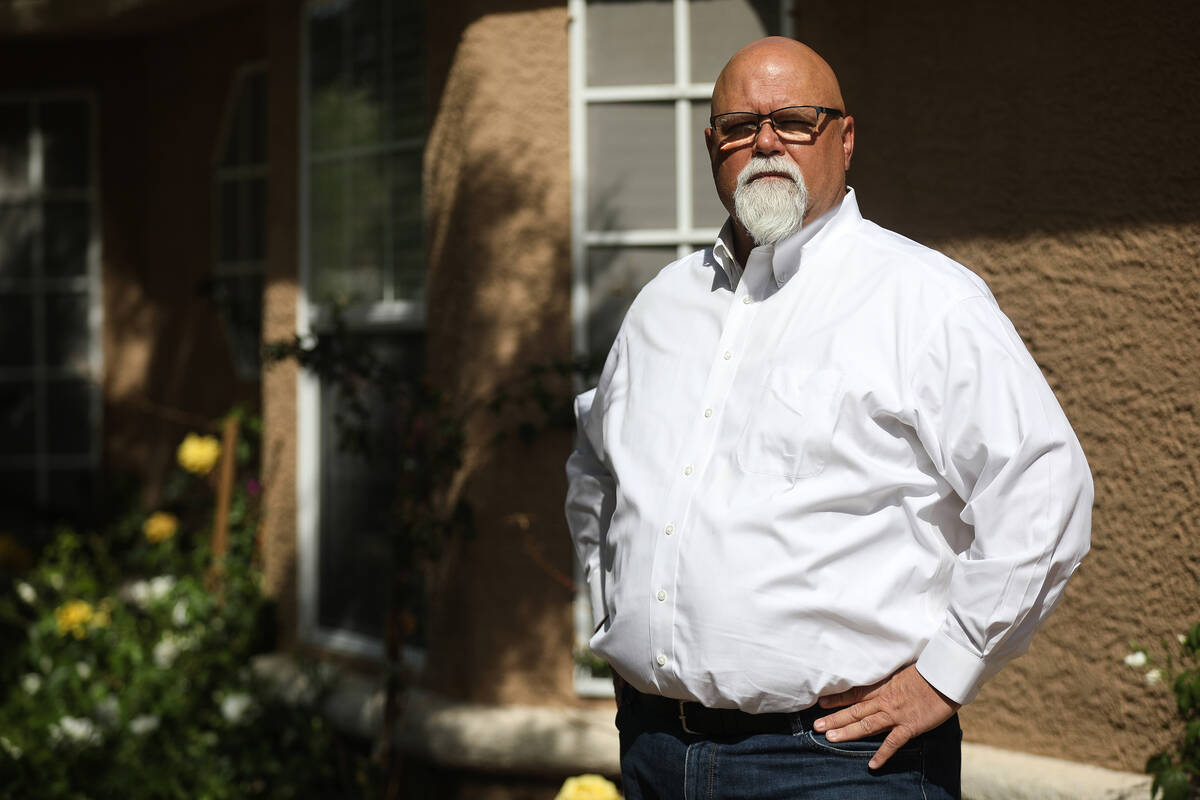‘Invisible enemy’: Nonprofit, legislators aim to help vets exposed to toxins

Since Dave Crete began his fight to ensure that veterans exposed to toxic chemicals at a nuclear test site in Nevada receive compensation, he has heard from hundreds of veterans who share similar stories of developing tumors, different types of cancers and pulmonary problems.
Crete hopes those veterans will soon start to receive benefits. His nonprofit organization, The Invisible Enemy, will hold its first fundraiser 6 p.m. Thursday at Born and Raised in North Las Vegas.
The funds raised will help the organization advocate for legislation in Congress and educate the public about the “invisible enemy,” or the chemicals veterans were exposed to in the ’80s while working at what was then the Nevada Test Site.
“You can’t see ionizing radiation,” he said. “The alpha particle is microscopic, so nobody can see it. … You don’t know it’s there. It was in the dust that you breathe, it was in the water that you drink. It’s what your food was cooked in.”
The Las Vegas Review-Journal first reported in April about Crete’s efforts to help veterans like himself who were exposed to plutonium in the ’80s in Nevada. Since then, Crete has grown his operation and plans to advocate for legislation.
He pushed Rep. Mark Amodei, R-Nev., to introduce legislation that would fill in the gaps that were left over from an executive order signed by President Bill Clinton in 2000. The order had compensated civilians and Department of Energy employees who worked on nuclear weapons, but not military Department of Defense active duty members or contractors.
Crete hopes the bill will be heard in the fall, and he is planning 10 to 12 trips to D.C. for veterans to testify before committees as the bill gets through the House and Senate.
“In Vegas, we all know people that work or have worked out on the range,” Crete said, “whether it’s a test site or in the military or whatever, it’s pretty common knowledge. In the rest of the world, it isn’t.”
When filing a claim for compensation, it’s hard for veterans to prove to the U.S. Department of Veterans Affairs that they were exposed to toxic chemicals. They must provide proof of on-site participation, as well as radiation dose assessments from the Defense Threat Reduction Agency, according to a statement from the office of Rep. Dina Titus, D-Nev.
And for veterans like Crete, their time at the sites in Nevada were “top secret” and classified, Crete said. Compensating them for the illnesses they got from their active-duty service would require acknowledging they were there in the first place.
For some of the people who worked on the sites in the ’80s, they just “want the government to acknowledge what happened,” Crete said.
Back in July, Titus introduced legislation that aims to eliminate some of the bureaucratic hurdles that “atomic veterans” have to jump through in order to receive benefits.
The Providing Radiation Exposed Servicemembers Undisputed Medical Eligibility (PRESUME) Act will prohibit Veterans Affairs from requiring evidence of a certain dose of radiation to determine if a veteran is considered radiation-exposed.
“In the course of their service, like anyone on the battlefield, veterans at the Nevada Test Site put themselves in harm’s way in service to our country,” Titus said in a statement. “We cannot continue to leave any of them behind.”
Contact Jessica Hill at jehill@reviewjournal.com. Follow @jess_hillyeah on X.